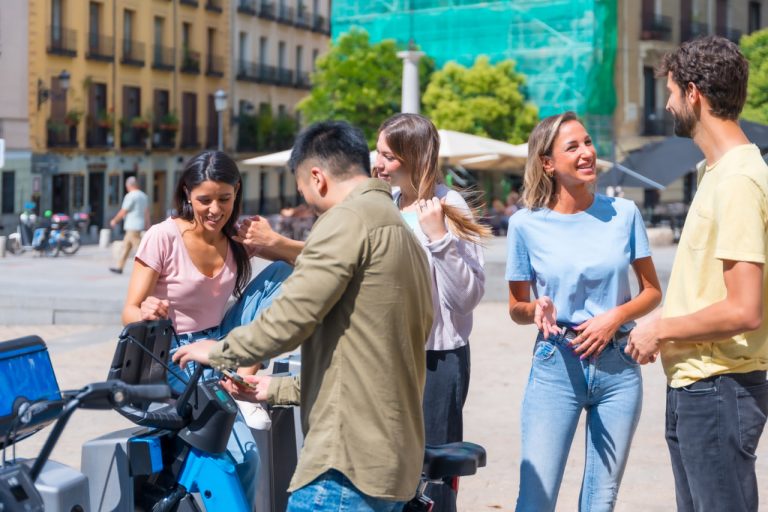Why Learning Daily Phrases Matters
Learning a new language can be overwhelming if you try to master grammar and vocabulary all at once. However, focusing on practical, everyday phrases can quickly give you the confidence to start speaking in real situations. Spanish is widely spoken around the world, and even basic knowledge of key expressions can make your travel, work, or social experiences much smoother. When you learn phrases you’ll actually use, the language becomes alive and immediately functional.
Starting Simple: Greetings and Introductions
One of the first steps in learning Spanish is knowing how to greet people and introduce yourself. These moments set the tone for any interaction and help establish a connection.
“Hola” means “Hello” and is a universally friendly opener.
“¿Cómo estás?” translates to “How are you?” for informal settings.
“Me llamo…” means “My name is…” and is essential for introductions.
Being able to comfortably say who you are and ask someone how they’re doing allows you to engage naturally. Adding phrases like “Mucho gusto” (Nice to meet you) shows politeness and friendliness right from the start.
Navigating Daily Situations
Once you’re past greetings, the next set of essential phrases deals with daily routines. Ordering food, asking for directions, or shopping all require simple but specific language.
If you’re at a restaurant, phrases like “Quisiera una mesa para dos” (I’d like a table for two) or “La cuenta, por favor” (The check, please) are incredibly useful.
Shopping? Use “¿Cuánto cuesta?” (How much does it cost?) or “¿Tiene esto en otro color?” (Do you have this in another color?).
In transit or on the street, you’ll need “¿Dónde está el baño?” (Where is the bathroom?) or “Estoy perdido” (I’m lost).
These phrases help you manage real-life scenarios with greater ease and reduce the anxiety that comes with being in a foreign environment.
Making Small Talk and Socializing
Speaking a language isn’t just about functional exchanges. It’s also about bonding with people. Learning some basic small talk phrases helps create relationships and opens up your cultural understanding.
Simple conversation starters include “¿De dónde eres?” (Where are you from?) and “¿Qué te gusta hacer?” (What do you like to do?).
Responding with “Soy de…” (I’m from…) or “Me gusta…” (I like…) lets you share about yourself and find common ground.
Being able to say “Eso suena interesante” (That sounds interesting) or “¡Qué bien!” (How nice!) keeps the flow going.
These expressions allow for genuine human connection and help you feel like part of the conversation rather than just an observer.
Handling Problems Politely
Even the best interactions sometimes hit a snag. Knowing how to ask for help or explain an issue is part of mastering practical Spanish. The key here is politeness and clarity.
Use “Perdón” (Excuse me) or “Disculpe” (Sorry) to get someone’s attention or apologize.
If you don’t understand, say “No entiendo” (I don’t understand) or “¿Puede repetirlo, por favor?” (Can you repeat that, please?).
For more serious help: “Necesito ayuda” (I need help) or “¿Dónde está la embajada?” (Where is the embassy?).
These expressions can help you stay calm and manage unexpected moments, whether it’s a minor confusion or a genuine emergency.
Practice Makes Natural
Learning these everyday phrases is just the beginning. The more you use them in actual conversations, the more naturally they’ll come to you. Repetition builds confidence, and confidence leads to fluency. Try speaking to native speakers, joining conversation groups, or practicing through role-play scenarios.
Don’t worry about perfection — focus on communication. Even if your accent isn’t perfect or you make a grammatical mistake, most people will appreciate your effort and be glad to help. What matters most is being able to express yourself and understand others in meaningful ways.
The First Step Toward Fluency
Mastering everyday Spanish phrases gives you a strong foundation for all your future learning. These expressions are the tools you’ll use daily, and they pave the way for deeper knowledge of the language. Whether you’re traveling, living abroad, or simply expanding your skills, practical Spanish empowers you to interact confidently and comfortably.



